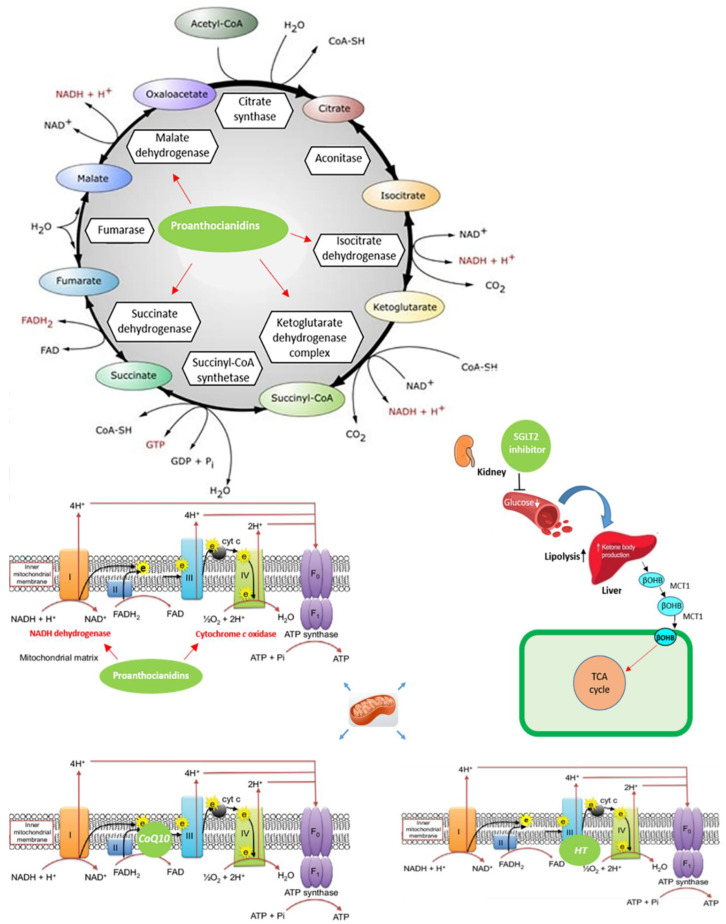Figure 1.
Effects of nutraceuticals on the mitochondrial function in heart diseases. Coenzyme Q10 (CoQ10) plays a critical role in adenosine triphosphate (ATP) generation by accepting electrons from complexes I and II and transporting them to complex III of the mitochondrial electron transport chain. Moreover, CoQ10 is involved in the protons’ transfer in the inner mitochondrial membrane, called the proton motive Q-cycle, leading to the free movement of protons through the internal mitochondrial membrane; sodium–glucose cotransporter (SGLT2) inhibitors increase the amount of ketone bodies; proanthocyanidins significantly increase the activities of mitochondrial enzymes (isocitrate dehydrogenase, succinate dehydrogenase, malate dehydrogenase and α-ketoglutarate dehydrogenase) and respiratory chain enzymes (nicotinamide adenine dinucleotide (NADH) dehydrogenase and cytochrome c oxidase); hydroxytyrosol (HT) is able to improve the integrity of complex-III of the mitochondrial electron transport chain.

